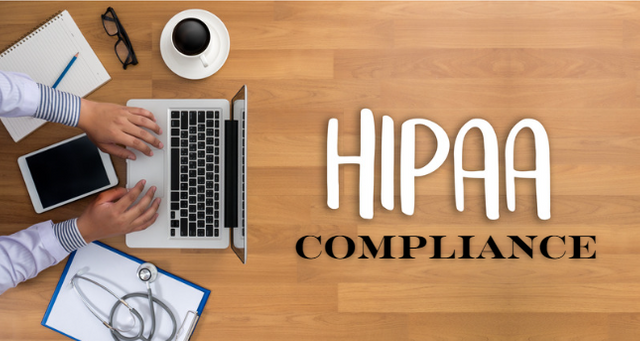
In today's digital age, email has become the go-to method of communication for businesses and individuals alike. However, when it comes to the healthcare industry, email communication raises a critical concern: https://www.officite.com/hipaa-secure-email/ the security and privacy of patient information. This is where the importance of HIPAA compliance comes into play.
Understanding the Importance of HIPAA Compliance
HIPAA, which stands for the Health Insurance Portability and Accountability Act, was enacted in 1996 with the aim of safeguarding patients' sensitive data. It sets the standards for protecting the privacy and security of health information, including email communication.
Ensuring HIPAA compliance in email communication is crucial for healthcare organizations. It helps prevent unauthorized access, ensures the integrity of patient data, and protects individuals from potential identity theft or fraud. Failure to comply with HIPAA regulations can result in severe consequences, including hefty fines and reputational damage.
Key Components of HIPAA Regulations
HIPAA regulations consist of several key components that healthcare organizations must adhere to in order to maintain compliance. These components include:
Privacy Rule: The Privacy Rule establishes standards for protecting individuals' medical records and other personal health information. It requires healthcare providers to obtain patient consent before disclosing their information and sets limits on the use and disclosure of that information.
Security Rule: The Security Rule sets the standards for protecting electronic health information (ePHI). It requires healthcare organizations to implement administrative, physical, and technical safeguards to ensure the confidentiality, integrity, and availability of ePHI.
Breach Notification Rule: The Breach Notification Rule requires healthcare organizations to notify affected individuals, the Department of Health and Human Services, and, in some cases, the media, in the event of a breach of unsecured ePHI.
Risks and Consequences of Non-Compliance
The risks and consequences of non-compliance with HIPAA regulations in email communication are significant. Healthcare organizations that fail to comply may face the following:
Fines and Penalties: HIPAA violations can result in substantial financial penalties. The penalties range from $100 to $50,000 per violation, with an annual maximum of $1.5 million. The exact penalty amount depends on the level of negligence and the nature of the violation.
Reputational Damage: Non-compliance can lead to reputational damage for healthcare organizations. News of a data breach or violation can erode patient trust and negatively impact the organization's reputation.
Legal Consequences: Non-compliance can also result in legal action, including civil lawsuits and criminal charges. Patients whose privacy has been compromised may seek legal recourse, resulting in further financial and legal ramifications for the organization.
Best Practices for HIPAA Compliant Email Communication
To ensure HIPAA compliance in email communication, healthcare providers should follow these best practices:
Secure Email Encryption: Healthcare organizations should use secure email encryption protocols, such as Transport Layer Security (TLS), to protect the confidentiality and integrity of email communications. Encryption helps prevent unauthorized access and ensures that sensitive information remains secure during transmission.
Implement Policies and Procedures: Healthcare organizations should establish clear policies and procedures for email communication. These policies should outline guidelines for sending, receiving, and handling patient information, as well as guidelines for employee training and awareness.
Access Controls: Implementing access controls ensures that only authorized individuals have access to patient information. This includes using unique user IDs, passwords, and other authentication methods to restrict access to sensitive data.
HIPAA Compliant Email Providers and Software
Choosing a HIPAA compliant email provider or software is essential for healthcare organizations. These providers offer advanced security features and encryption protocols that meet HIPAA requirements. Some popular HIPAA compliant email providers include:
ProtonMail: ProtonMail is an encrypted email service that offers end-to-end encryption and zero-access encryption. It ensures that only the intended recipients can access the encrypted email content.
Hushmail: Hushmail is another secure email provider that offers encrypted email communication. It provides HIPAA compliant services and includes features such as secure web forms and secure file sharing.
Training and Education for HIPAA Compliance
Training and education play a crucial role in maintaining HIPAA compliance in email communication. Healthcare organizations should provide regular training sessions to employees to ensure they understand the importance of HIPAA compliance and are aware of best practices for email communication. This training should cover topics such as secure email encryption, handling sensitive information, and recognizing potential security risks.
Implementing Security Measures for Email Communication
In addition to encryption and access controls, healthcare organizations should implement additional security measures to protect email communication. These measures include:
- Firewalls and Antivirus Software: Firewalls and antivirus software help protect against malware, viruses, and other cyber threats that can compromise email security.
- Email Filtering and Monitoring: Implementing email filtering and monitoring tools can help detect and prevent phishing attempts, spam, and other malicious email activities.
- Regular Security Audits: Regular security audits help identify vulnerabilities and ensure that email communication systems meet HIPAA compliance standards.
Common Misconceptions about HIPAA Compliance in Email Communication
There are several common misconceptions about HIPAA compliance in email communication. It is important to address these misconceptions to ensure a better understanding of the requirements and responsibilities:
"Regular email is HIPAA compliant": Regular email services, such as Gmail or Outlook, are not inherently HIPAA compliant. Specialized HIPAA compliant email providers or software must be used to ensure compliance.
"Encryption is optional": Encryption is not optional when it comes to HIPAA compliant email communication. It is a requirement to protect the confidentiality and integrity of patient information.
"HIPAA compliance is only the IT department's responsibility": HIPAA compliance is a shared responsibility across the entire organization. All employees who handle patient information, including those who use email communication, must be aware of and comply with HIPAA regulations.
Ensuring HIPAA compliance in email communication is essential for protecting sensitive patient information. Healthcare organizations must understand the importance of HIPAA regulations and take the necessary steps to meet the standards set forth by HIPAA. By implementing secure email encryption, establishing policies and procedures, and providing training and education, healthcare providers can safeguard patient data and maintain the trust and privacy of their patients.